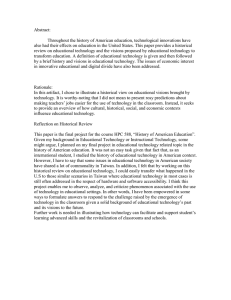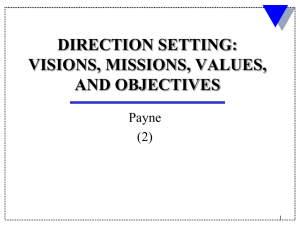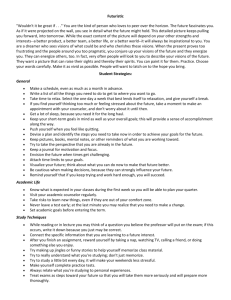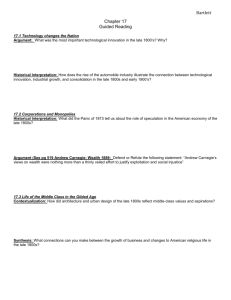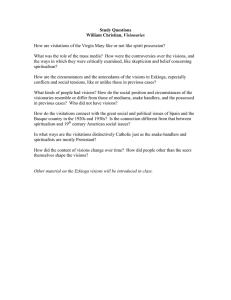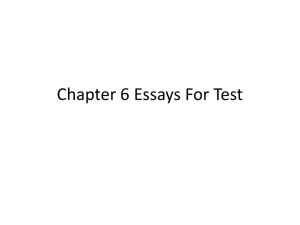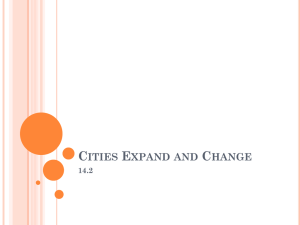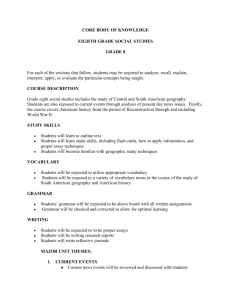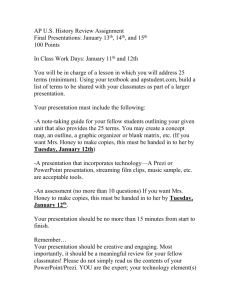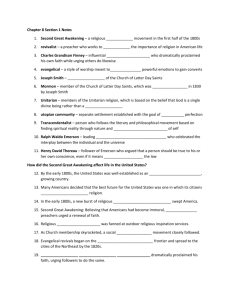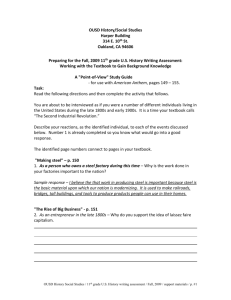History of Adult Education - Adult Education Portfolio
advertisement
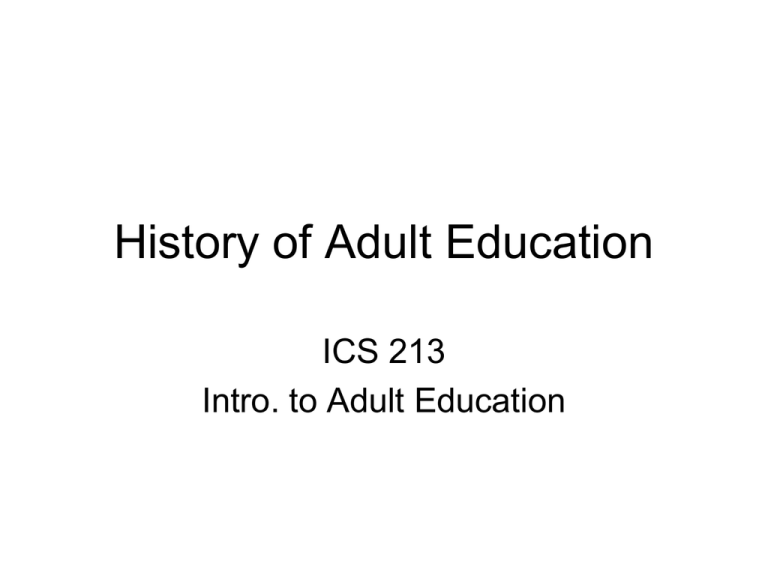
History of Adult Education ICS 213 Intro. to Adult Education Received Tradition • English culture prevailed • Indentured servants = ½ of post 1630 immigrants to the thirteen colonies • Desire for a skilled male work force with high literacy rates • Puritan concerns for schooling and literacy. • Illiteracy had to be addressed – 1/3 of males, most females, blacks, & Native Americans were illiterate Independence & Expansion • In 1776, the Articles of the Confederation Interpreted the people as meaning free white, male citizens • The federal government worked with missionary groups to assimilate the Native Americans into American society. Schools promoted agriculture, stock raising, and conversion to Christianity. Independence & Expansion • In the 1800s, textile mills provided educational training opportunities for women. Education became part of a broader movement. Women became literate and taught Sunday School. • Education became a central part of a broader women’s rights movement which developed after 1840. Independence & Expansion • In the mid 1800s, farmers studied crops in a farmers institute • Clerks studied bookkeeping in a mercantile library association • Presentation were made a libraries concerning foreign travel, literature, and social issues such as slavery. Independence & Expansion • In 1800s, government funded education reinforced nationalism, the status quo, and the expansion of the middle class. • Lyceums developed in 1830s • Chautauqua developed in late 1800s. • Abolitionists, feminists, and socialists developed alternative educational programs to promote their activities. Independence & Expansion • In 1900s, university education became centers of national expansion that spread new research findings across society via university extension. • Cooperative Extension agents mobilized industrial agriculture to replace agrarian agricultures. • Migrants were indoctrinated to the American way via evening schools, churches, factories, and private organizations. • Independent educational organization like the YMCA developed to meet the educational and recreational needs of urban industrial workers. The Emergence of an Independent Society • In early 1900s, women, migrant laborers, and small farmers envisioned an alternative America in which they were granted increasing power. • Education became a way of learning our way out of traditional American thinking. Dominant Movements in Adult Ed. • The economic depression of 1929 provide new learner needs to be met by Adult Ed. • Carnegie Corporation provided funding for expansive adult education activity • Eduard C. Lindeman advance adult education as social education which gained its greatest power when united with social action. Post-World War II Adult Education • The GI Bill (1944) – subsidized higher education and vocational training for over two million veterans • Community Colleges developed • Education was seen as a tool for retraining American workers [Johnson – War on poverty / Nixon – Community Action program / Reagan – Job Training Partnership Act]. Diverse Visions for Adult Education • Minority groups viewed Adult Education as a tool in the fight for social change and political and economic justice • Southern Christian Leadership Conference and the Highlander Folk School founded by Myles Horton • National Organization for Women • The American Indian Movement • The National Farm Workers Association Diverse Visions for Adult Education • Liberal Educators viewed Adult Education as a tool to improve the quality of life • The Great Books Program of Robert Hutchins and Mortimer Adler • The Ford Foundation’s Fund for Adult Education • The Association of University Evening Colleges Diverse Visions for Adult Education • Business and government leaders viewed Adult Education as a tool to effectively manage human resources [Human Resource Organization and Development] • Educating all workers [GED] • Making American workers more competitive in the global workplace [HROD] • Strengthening America dominance in the global economy Diverse Visions for Adult Education • Theological Training Programs applied adult learning principles of Agricultural extension. The result was TEE – Theological Education by Extension. • Training programs developed to Teach Speakers of Other Languages English – TESOL, ESL – English as Second Language, and EFL – English as foreign language.
